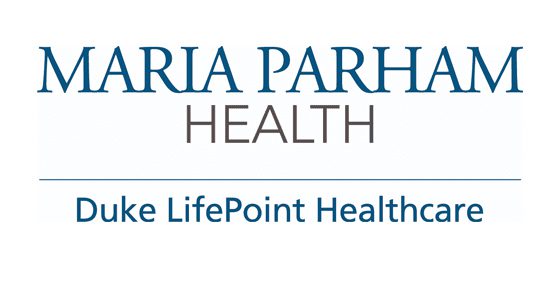If you’re feeling generally well today, you probably have your thyroid to thank. Dr. Gary Smith, family physician Maria Parham Primary Care, discussed the multiple jobs that this small, butterfly-shaped gland has to keep our bodies functioning normally.
January is National Thyroid Awareness month, and Smith was a guest on Town Talk Wednesday to discuss the thyroid’s role in good health.
The thyroid is part of the endocrine system, and it produces several hormones that help to regulate metabolism and body temperature, among other functions. It is located in the front of the neck, near the middle and below the Adam’s apple. “It has profound effects on the mind and the body,” Smith said. “The thyroid has many functions – it regulates hormones of the body, temperature regulations, stability of organ systems,” he said.
A simple blood test can show whether the thyroid is producing too much hormone or too little, he said. In either case, Smith said, medication is most often the answer. Hypothyroidism, when the thyroid isn’t producing enough hormone, can cause slower heart rate or brittle, dry nails and hair loss, he said. Symptoms of hyperthyroidism, when the thyroid over-produces hormone, could include nervousness, increased heart rate or anxiety, he added. Medication is needed to either stimulate or slow the thyroid. “We like a nice, normal level to be in sync with other parts of the body,” Smith noted.
Click Play to Listen to the TownTalk Interview…
In addition to helping regulate your heartbeat, a healthy thyroid also “helps blood flow to the brain so you can think clearly,” Smith said. It affects the lungs and how we breathe, our intestines and how we process and digest food as well. “We are definitely dependent on the thyroid gland for (healthy) function of our body,” Smith said.
A healthy diet, with lots of fruits and vegetables, as well as exercise, serve to support the body’s immune system and increases blood flow throughout the body, including to the thyroid.
The thyroid may be a small gland, but its role in overall health is significant. “We don’t take this gland for granted,” Smith said. “If a patient feels their neck and something doesn’t feel right, a mass or something hard, call your primary care physician. Don’t wait,” he advised.
In cases that diseased or cancerous thyroids are removed, patients would benefit from supplementing with a synthetic hormone to replace what the body no longer naturally produces.
Smith’s advice for anyone with questions or concerns? Consult with their primary care physician. “That’s the best thing to do, to follow up with your primary care physician and let them assist the patient in whatever their concerns are,” he said. We’ll explore it, and we’ll find the cause or the reason for the concern.”
(Maria Parham Health is an advertising client of WIZS. This is not a paid ad.)



















